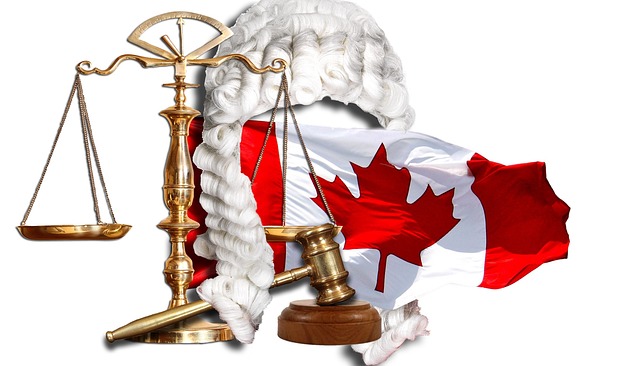The Sixth Amendment Rights in Court ensure fair trials for all accused individuals, with protections like impartial jury, legal counsel, and confrontational rights. These rights are vital in complex cases, guiding strategies against evidence and protecting against self-incrimination. Defense attorneys play a key role, navigating rules to ensure justice, fairness, and due process, especially in white-collar and economic crime scenarios.
“Delve into the intricate world of criminal law enforcement and discover the fundamental principles that shape justice. This article guides you through the essential components of criminal court proceedings, focusing on the rights of defendants during arrest and interrogation. We explore in depth the Sixth Amendment Rights in Court, highlighting their significance in ensuring a fair trial. Learn how evidence and legal arguments play crucial roles in navigating this complex landscape.”
- Understanding Criminal Court Proceedings
- Defendant's Rights During Arrest and Interrogation
- Sixth Amendment Rights in Court: A Comprehensive Look
- The Role of Evidence and Legal Arguments
Understanding Criminal Court Proceedings

Understanding Criminal Court Proceedings is a cornerstone for ensuring justice and fairness. When an individual is accused of a crime, they are entitled to specific rights guaranteed by the Sixth Amendment. This includes the right to a speedy trial, confrontation of witnesses, and assistance from legal counsel—all aimed at protecting the defendant’s interests. The process involves several stages: initial arrest, charging, preliminary hearing, arraignment, discovery, pretrial hearings, jury selection (for jury trials), and finally, trial. Each stage is crucial in navigating the complex legal landscape, especially for corporate and individual clients alike.
For instance, white-collar and economic crimes often require a nuanced approach due to their intricate financial and legal aspects. The right to a fair trial, including the opportunity to present evidence and challenge that of the prosecution, becomes even more critical. Jury trials play a significant role in these cases, offering a robust system of checks and balances. This ensures that corporate and individual defendants receive a thorough examination of the facts, ultimately fostering trust in the criminal justice system.
Defendant's Rights During Arrest and Interrogation

During an arrest, individuals have specific rights guaranteed by the Sixth Amendment to ensure a fair trial. These include the right to remain silent, meaning they can choose not to answer questions that could incriminate them. This is crucial as it prevents coercion and self-incrimination, a fundamental principle in criminal law. Furthermore, defendants are entitled to legal counsel, allowing them to have a lawyer present during interrogation. This right enables individuals to understand their options, challenge evidence, and protect themselves from making statements that might later be used against them.
The Sixth Amendment rights extend beyond the courtroom, influencing strategies in white-collar defense cases. In these scenarios involving complex financial crimes, understanding one’s rights is vital. For instance, those involved in philanthropic or political communities may face investigations, where avoiding indictment becomes a priority. Knowing how to assert these constitutional rights can help individuals navigate such situations, ensuring their legal protections are not compromised.
Sixth Amendment Rights in Court: A Comprehensive Look

The Sixth Amendment Rights in Court are a cornerstone of fair legal proceedings, ensuring that individuals accused of crimes receive a just trial. This amendment guarantees various protections, including the right to an impartial jury, the assistance of counsel, and the ability to confront witnesses testifying against them. Achieving extraordinary results in criminal cases often hinges on these rights, as they empower defendants to navigate the complexities of the legal system effectively.
Understanding and asserting these rights is crucial throughout all stages of the investigative and enforcement process. From the initial arrest to the final verdict, attorneys play a vital role in protecting their clients’ Sixth Amendment Rights. By ensuring proper procedures are followed and evidence is handled correctly, lawyers can help avoid indictment or strengthen the defense strategy. This, in turn, fosters a more equitable legal landscape where justice prevails.
The Role of Evidence and Legal Arguments

In the realm of criminal law enforcement, the role of evidence and legal arguments is pivotal to ensuring justice is served. Evidence, whether physical or testimonial, forms the backbone of any case, providing the court with concrete facts upon which to base its decisions. The Sixth Amendment Rights in Court guarantee that accused individuals have the right to a fair trial, including the right to counsel and the privilege against self-incrimination. This constitutional protection ensures that the burden of proof lies squarely on the prosecution, safeguarding against arbitrary or unjust convictions.
Legal arguments play a complementary role, with defense attorneys employing strategic reasoning and precedential law to challenge the admissibility of evidence and the strength of the prosecution’s case. In the context of general criminal defense, especially for white-collar and economic crimes, these arguments can lead to significant outcomes, including the complete dismissal of all charges. Skilled legal counsel leverages procedural rules and statutory interpretations to protect their clients’ interests, ensuring that justice is not only served but also met with fairness and due process.
In understanding criminal law enforcement, it’s crucial to comprehend the intricate dance between defendant rights and legal procedures. From arrest to court proceedings, knowledge of one’s Sixth Amendment rights is paramount. This article has navigated key aspects, from the court system overview to evidence handling and defendant protections during interrogation. By recognizing these rights, individuals can navigate their legal journey with confidence, ensuring a fair and just process that upholds the foundations of our criminal justice system.






